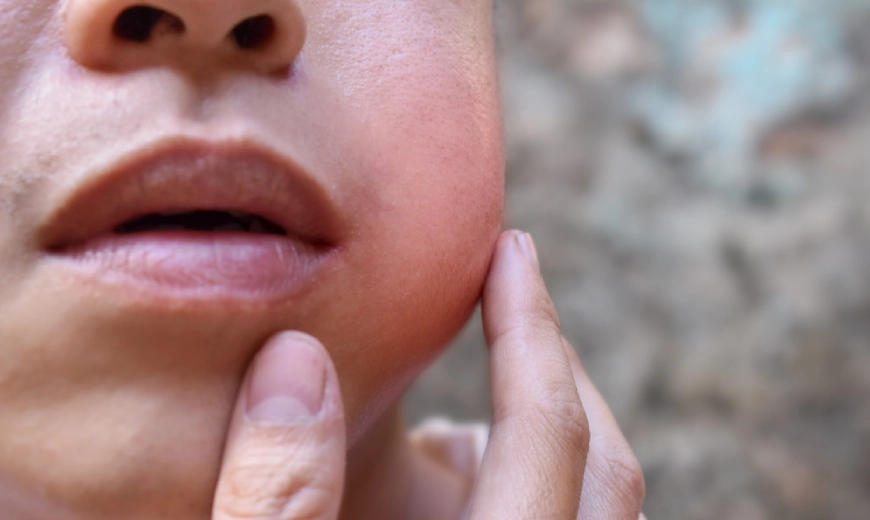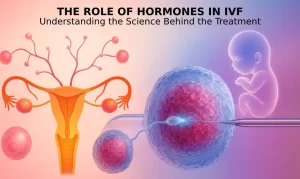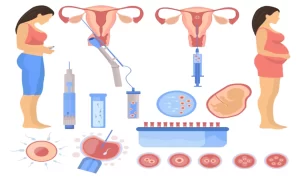Mumps is often considered a childhood disease, but its effects can extend far beyond the typical fever and swollen salivary glands. For post-pubertal males, one of the most serious complications of mumps is its impact on fertility. Mumps can lead to orchitis, an inflammation of the testicles that can cause reduced sperm production and in severe cases, male infertility. This blog delves into the connection between mumps and male fertility, highlighting the risks, symptoms, and treatment options available at Ankoor Fertility Clinic in Mumbai.
What is Mumps?
Mumps is a viral infection caused by the paramyxovirus. It mainly spreads through respiratory droplets when an infected person coughs, sneezes or talks. It can also spread by touching infected surfaces and then touching the mouth or nose. Mumps is highly contagious and usually occurs in children, but adults who are not vaccinated can also get infected.
The most common symptom of mumps is swelling of the salivary glands, particularly the parotid glands located near the ears. This swelling can cause pain, difficulty in swallowing and fever. Other symptoms may include:
- Headache
- Muscle pain
- Loss of appetite
- Fatigue
- Fever
Mumps usually lasts for about one to two weeks and most people recover without complications. However, in some cases, the virus can spread to other parts of the body, leading to complications such as meningitis, pancreatitis, and in males orchitis (inflammation of the testicles).
How Mumps Can Affect the Sperms?
One of the most serious complications of mumps in post-pubertal males is orchitis, which affects about 20-30% of men who contract the virus. Orchitis is the swelling and inflammation of one or both testicles. This can have direct effects on sperm production and fertility. Here’s how it happens:
1. Testicular Inflammation and Damage
When the virus reaches the testicles, it causes severe swelling and pain. This inflammation can damage the tissues responsible for producing sperm. If both testicles are affected, the chances of low sperm count or infertility increase.
2. Reduction in Sperm Production
The testicles produce sperm continuously, but inflammation due to orchitis can disrupt this process. Even after recovery, sperm production might remain low for a long time, leading to difficulties in conception.
3. Testicular Atrophy (Shrinking of Testicles)
In some cases, after the inflammation subsides, the testicles may shrink in size. This condition is called testicular atrophy, which can further decrease sperm count and affect the production of testosterone, the male hormone responsible for reproductive health.
4. Impact on Hormonal Balance
Mumps can also affect the Leydig cells, which are responsible for producing testosterone. If testosterone levels drop, it can lead to issues such as low libido, fatigue and difficulty in maintaining erections. While not all men experience severe hormonal imbalance, those who do may require medical intervention.
5. Risk of Infertility
Not all men who develop orchitis from mumps become infertile. In many cases, the testicles recover and sperm production returns to normal. However, in severe cases, where both testicles are affected, permanent infertility may occur due to extensive tissue damage.
Treatment for Male Infertility due to Mumps
particularly when contracted after puberty, can lead to orchitis (inflammation of the testicles), which may result in male infertility due to impaired sperm production. At Ankoor Fertility Clinic in Mumbai, several treatment options are available to address male infertility resulting from conditions like mumps:
1. Hormonal Therapy:
If hormonal imbalances are identified, specialized medications can help regulate and restore normal testosterone levels. This balance is crucial for maintaining healthy sperm production and overall reproductive function. Proper hormonal therapy can significantly improve fertility outcomes in men affected by mumps-related complications.
2. Surgical Interventions:
In cases where physical abnormalities such as varicocele (Enlarged Veins in the Scrotum) are present, surgical procedures can be performed to improve sperm quality.
3. Assisted Reproductive Technologies (ART):
- Intrauterine Insemination (IUI):
This procedure involves placing processed sperm directly into the uterus around the time of ovulation, increasing the chances of conception. - In Vitro Fertilization (IVF): Eggs are retrieved from the woman’s ovaries and fertilized with sperm in a laboratory setting. The resulting embryo is then implanted into the uterus. For severe cases of male infertility, Intracytoplasmic Sperm Injection (ICSI) can be utilized, where a single sperm is directly injected into an egg to facilitate fertilization. An IVF Centre in Mumbai commonly provides IVF treatment for couples struggling with infertility challenges.
4. Lifestyle Modifications:
Adopting a healthier lifestyle can significantly impact fertility. This includes quitting smoking, reducing alcohol consumption, maintaining a healthy weight and engaging in regular exercise. A balanced diet rich in vitamins and antioxidants also plays a crucial role in improving sperm quality.
Final Thought…
Mumps is a preventable disease and its complications, including infertility, can be avoided with proper vaccination. The MMR vaccine is the best protection against the virus. If a male contracts mumps, early treatment and rest help reduce the risk of orchitis and infertility. While most men recover fully, those with long-term issues should seek medical advice. For expert guidance and advanced fertility treatments, visiting a Fertility Center in Mumbai is highly recommended.







